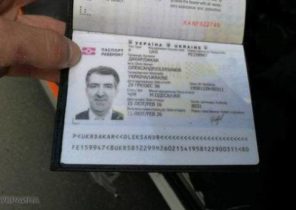
Today we are often surprised by the eloquence of the populists. However, the phenomenon is not new. Almost 85 years ago, in 1932, the German philosopher Victor Klemperer (Klemperer Victor) received from the Italian Consulate in Dresden invitation to celebrate the 10th anniversary from the day of coming to power in Italy of the Nazis. The event took place 23 October 1932, it was dedicated to the demonstration of the film about the “Decade of fascism.” In the movie it was about Benito Mussolini, who at that time was in Italy “Fuhrer” in 1922. It happened in the last period of the existence of the Weimar Republic, when German democracy has not yet derailed. Klemperer was a Professor of romance languages and French literature at the Technical University of Dresden.
He first heard the speech of Mussolini, it was even before he’s four months later, heard of Adolf Hitler. Both speeches have shocked him so much that he felt simply obliged to record in his diary his impressions of the victorious March of Nazism in Germany in early 1933 until its collapse in 1945.
Philologist Klemperer was particularly interested in the oratorical gift of the leaders. The conclusion made was that the oratorical gift in the broadest sense of this word affected the political development of the countries concerned. A Jew, Klemperer survived political persecution by the Nazis, and the bombing of Dresden. In 1957 he published his famous work ‘LTI Notizbuch eines Philologen’, (LTI is the abbreviated lingua Tertii Imperii (Language of the Third Reich), which, in his opinion, tempted the German government.
He found the language of Hitler is so unique that it remains a mystery how someone could seduce such a strange behavior. Oratorical abilities of Mussolini and Hitler in LTI dedicated a special Chapter on the first decade of fascism, 1922-1932.
The distinctive ability gift of oratory, Mussolini, according to Klemperer, there was a specific interaction between his escapades and the enthusiastic reaction of the audience. Mussolini orderstotal with incredible energy that made his performance similar to a Church service where much of the speech was repeated, and the sentences were as short as possible. The audience reacted so violently that the reaction this was hardly the reaction of sane people. When Mussolini said, his mouth became huge, and Klemperer have noted the lively gesticulation of the fingers, emitted forward and raise up your hand, while the audience roared with delight.
Klemperer writes, as Adolf Hitler later took over a large part of the means characteristic of Mussolini, which he then developed from a more classic eloquence to rhetoric, which was evident when he spoke to the masses in Nuremberg, Munich and Potsdam.
Klemperer argues that Hitler borrowed from the fascist symbols of Mussolini and his title (the German version of the duce), and outstretched in greeting hand, and dressed in the uniform of the storm troopers. Hitler also took over from his Italian ideal and the idea of playing in public, masses of people and the impact of the game on the audience. It was an extension of the concept, which, according to Klemperer, dates back to Jean-Jacques Rousseau. Rousseau defined “policy” as the negotiations between the leader and his subjects, which occur in Polis Chrysochous (polis), a city-state like Geneva, where Rousseau was born, and a citizen who considered himself all his life.
The quintessential statesman was for Rousseau tribune of the people, the speaker who told the citizens gathered in the town square, about the negotiations.
This means that people must physically gather to meet the Governor. To prevent the citizens from leaving, policy in the Soviet Union in the period between the world wars used modern social media in the form of film and radio, but even here technical innovations under the leadership of Goebbels in Nazi Germany was brought to perfection. Message to all in society, in contrast to appeals to a select few places new requirements: the main idea was to obtain a response in the hearts of all, and this affected the command of the speaker, because he has now ceased to be a public speaker and became a rhetorician, who were brought to their attention seductive rhetoric. Populism was the cause and the result of the creative flow of emotional messages, the purpose of which was to entice, not to educate.
In the late 20th and early 21st century a new social media based on Internet and mobile phones, did the rhetoric and closer, and more difficult, because to reach it is now possible to everyone, although everyone can choose between countless sources of information.
From the point of view of someone who wants to lead the people required special means of influence in order to achieve the dependency, which will provide a link with the sources that the leader has chosen. Klemperer was my understanding that in order for the promise to take effect, it needs to be paid to the ears and the eyes, particularly to the ears, taking into account the dual effect of the cry of the conductor and the response of screaming students.
Here communication means are insufficient, and the difference between oratory and rhetoric should be understood as different properties of the performers: he is a noble man who teaches while the rhetorician, originally a con artist who tries to overcome natural resistance and to break innate skepticism, which is paralyzed, the intellect is no longer able to hold on to.
Hitler became Chancellor in January 1933, after negotiations about this post after the elections in 1932 that the Nazis had won, received, respectively, 37% and 32% of the vote. On the eve of elections on 5 March 1933 Hitler’s arrogance was so great that he has no hesitation in announcing the result. However, Hitler was, according to Klemperer, was the ultimate rhetorician that his personal charisma was exposed and doubts of self-worth and an inferiority complex combined with the conviction that it means more. A superiority complex was not backed by anything, just cries and cries, which were hiding deep insecurities that lead to acts of revenge and attempts by threats to force opponents to shut up.
For Klemperer it was inconceivable that so unbalanced, not owning him talking incoherently and tribune of the people could convince some of the listeners of the rightness of his political program. Klemperer also believed that the behavior of Hitler was actually especially German. Nevertheless, his speeches, Hitler was able to convince millions, until the last days of the war. This open combination of manifestations of inferiority and superiority, Hitler talked about the mental diagnosis that Klemperer was described as “colossal megalomania, combined with erroneous ideas of persecution”. However, Hitler with his rhetoric was able to break that barrier of mistrust, which is the normal protective barrier of the person. As a result, had inflamed the condition which initiated the German national character alien elements in the form of Nazi uniforms and hand movements.
The desire to give political opponents the psychiatric diagnoses is not in our days with something new, recent examples can make to remember the history. A few days after Donald trump won the presidential election in the United States, three psychiatrists wrote to President Obama that he must put trump’s complete medical and neuropsychiatric examination. The survey was meant to show how trump was fit to assume the position of head of state.
These three psychiatrist was convinced that Donald trump showed clear signs of a certain mental instability, which is characterized by delusions of grandeur, impulsiveness, over reaction to criticism and insults, and inability to distinguish fantasy from reality; the very same traits, which is believed to Klemperer, he found Hitler and Mussolini partially.
Three psychiatrists have referred to the so-called guide to American psychiatrists (Diagnostisk og Statistisk Manual) (DSM-5). In this Manual, lists nine symptoms characteristic of the disease, “narcissistic personality disorder” (NPD), and finds its existence in the case when there are at least five of the symptoms.
Some of the above mentioned symptoms there are many people, but only 1% of the population suffers from NPD. Therefore, the decisive diagnosis is a constant feeling of superiority in the patient, the need to be admired, lack of empathy that begins in youth and is manifested in relationships in at least five of the following features:
1. An exaggerated idea of his own importance and influence, people exaggerate the results of its operations and expects recognition, superior to all others, without verification of the relevant achievements.
2. Fantasies about unlimited success, power, intelligence, beauty and love.
3. Belief in “unusual and outstanding person who is able to understand and able to communicate only other particularly high-ranking person (or organization)
4. An excessive need for admiration.
5. The belief in the right to special privileges.
6. The use of other people.
7. Unwillingness to recognize and respect the feelings of others.
8. Envy or the idea that the man himself is the object of envy of others.
9. Arrogant and condescending behavior towards others.
According to psychiatrists, a person suffering from NPD, you may Wake up one morning, read the tweet or the news, which he described as weak, or to some other feature of threatening the self-assessment; as a result, this person will lose the ability to control himself, the reaction may take the form of impulsive and vindictive desire to punish the offender (with unpredictable consequences) are, in principle, is so serious that we can talk about the attack on another state, maybe with the use of nuclear weapons. Nothing incredible will not be in the occurrence of diplomatic crisis or Declaration of war, because patients with this disease is unable to react calmly. They are a people sensitive, insecure and aggressive, they constantly need to be praised and encouraged, because they themselves are not confident in their own values, and they must constantly support others. Any criticism in a tweet, quote or cartoon leads to further low self-esteem, and it should be compensated by the counter-attack.
According to psychiatrists, Narcissus, supposedly, can only react in one of two ways: either he’s your friend, or you’re an enemy that must be ruthlessly humiliate or defeat. To be in the close circle, a man who is not entirely congruent with the needs of the narcissist, is extremely difficult. There are supposedly only two ways to be around a narcissist, and both methods are dangerous: if you criticize a narcissist, having great power and influence, the consequences can be dire. If you praise the narcissist, it only contributes to his delusions of grandeur, and this makes it even more dependent on the compliments and praise. Narcissists crave attention and approval.
They can perfectly entertain the audience with great charm and energy, sometimes to such a great extent that it leads to the creation of a great political and spiritual community, but it still always ends with some kind of showdown.
The daffodils are no typical normal attitude to a critical press, they never take on the job of criticizing their people. It is difficult to listen to someone and take advice, because they always think “they know better”. They surround themselves with people who assents to them, who take part in the prophecies of Narcissus, aimed at self-assertion. Daffodils are difficult to focus on what they don’t understand, partly because they are bored, partly because they consider complex matter as something meaningless.
What does the world around them? According to Klemperer, nothing, or, at least, insufficient, because those who are substantial “support group” Narcissus, making explicit the necessary restrictions are illegitimate, even when the daffodils encroach on the laws and the Constitution, as happened in the Weimar Republic in 1933. The question arises: is it possible in such a situation to burden the situation further, and psychiatric diagnosis.
The diagnosis is considered a sign of disease and mental illness may be grounds to deprive the head of state of his powers or remove him from office. Here’s the problem for democracy, especially if the supporters of the narcissist or their representatives have a majority in the legislative Assembly.
Can three psychiatrist to replace him as a narcissist, elected by the majority of the population, even if victory has been achieved thanks to the special ability of the narcissist to create your community?
The U.S. Constitution provides for the electoral College as a sort of “safety valve”, but the electors and viborita, quite clearly perceive its mandate as required, perhaps because they have to pay a small fine if they violate it.
Klemperer did not doubt that Hitler suffered from NPD. Besides, Hitler was lazy, he didn’t drink or smoke. We will probably meet today’s a pathological narcissist who won’t doubt that this is a pathological narcissist. But as with the rest of our fellow citizens? What if they have no doubt otherwise?
Here the researchers of the human brain indicate the particular system in the brain that people employ when fantasizing about the future, inspired by the enthusiasm, which is future to us is. According to President Obama, which he said in 2009, we do not need to fear the future, on the contrary, we need to create it, is the cause of the great excitement.
Another problem is in the psychiatric diagnoses from private diagnostic Klemperer to the modern requirements to the professional diagnosis of the disease far and here psychiatry is helpless and powerless, because there is no consensus about whether a biological basis diagnoses based on symptoms and not on knowledge of actual brain damage.
Awe-inspiring Narcisse will be able to find a psychiatrist who is willing to sign a statement about the behavior of Narcissus, in which there is not a single sign of disease, but only certain personal traits are clearly popular among many voters. Unfortunately, sometimes it needs a world war to settle differences.
Albert Yedda Professor of neuroscience and pharmacology, University of Copenhagen. He is also an adjunct Professor at McGill University in Canada and at Johns Hopkins University in the United States.







